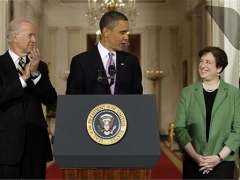Social media platforms such as facebook and twitter boast worldwide appeal and usage and now are even being used as legal tools to track down criminals. Since facebook is the largest social database in the world it can prove to be an invaluable resource when trying to track down suspected wrongdoers. Most recently, many are hoping that facebook will prove to be successful in tracking down a woman and her male film accomplice that were filmed tossing live puppies into a river. A facebo ok page dedicated to helping track down the duo has had more than 7,000 people sign up since the video was posted Monday. The video has sparked outrage across the Internet and has led to an animal rights group offering a bounty for the arrest of the people behind it. The tape was originally posted on YouTube, but was quickly pulled down. It is still widely available online and has gone viral, with sites such as LiveLeak.com registering more than 1.3 million views of the footage. Web users have banded together on sites like 4chan.org to help identify the woman and the off-camera man who filmed it. Animal rights officials maintain that clues in the video and the original post indicate that it may have been filmed near the Vrbas River in Bosnia-Herzegovina. Hopefully, the facebook community and other web users will be successful in their endeavor of identifying the perpetrators of such a heinous act of animal cruelty and then the law will be quick and harsh in punishing these individuals for their extreme acts of cowardliness and brutality. Many have seen news clippings where wrongdoers have been apprehended because they blogged about their crime or posted information about their bad act on their facebook profile. That being said I encourage everyone to be vigilant and aware of any insight that they might obtain via any social media outlet not only with respect to this heinous act but any unlawful acts.
ok page dedicated to helping track down the duo has had more than 7,000 people sign up since the video was posted Monday. The video has sparked outrage across the Internet and has led to an animal rights group offering a bounty for the arrest of the people behind it. The tape was originally posted on YouTube, but was quickly pulled down. It is still widely available online and has gone viral, with sites such as LiveLeak.com registering more than 1.3 million views of the footage. Web users have banded together on sites like 4chan.org to help identify the woman and the off-camera man who filmed it. Animal rights officials maintain that clues in the video and the original post indicate that it may have been filmed near the Vrbas River in Bosnia-Herzegovina. Hopefully, the facebook community and other web users will be successful in their endeavor of identifying the perpetrators of such a heinous act of animal cruelty and then the law will be quick and harsh in punishing these individuals for their extreme acts of cowardliness and brutality. Many have seen news clippings where wrongdoers have been apprehended because they blogged about their crime or posted information about their bad act on their facebook profile. That being said I encourage everyone to be vigilant and aware of any insight that they might obtain via any social media outlet not only with respect to this heinous act but any unlawful acts.
Watch video on LiveLeak.com. Please be aware that this video contains extremely offensive conduct.













